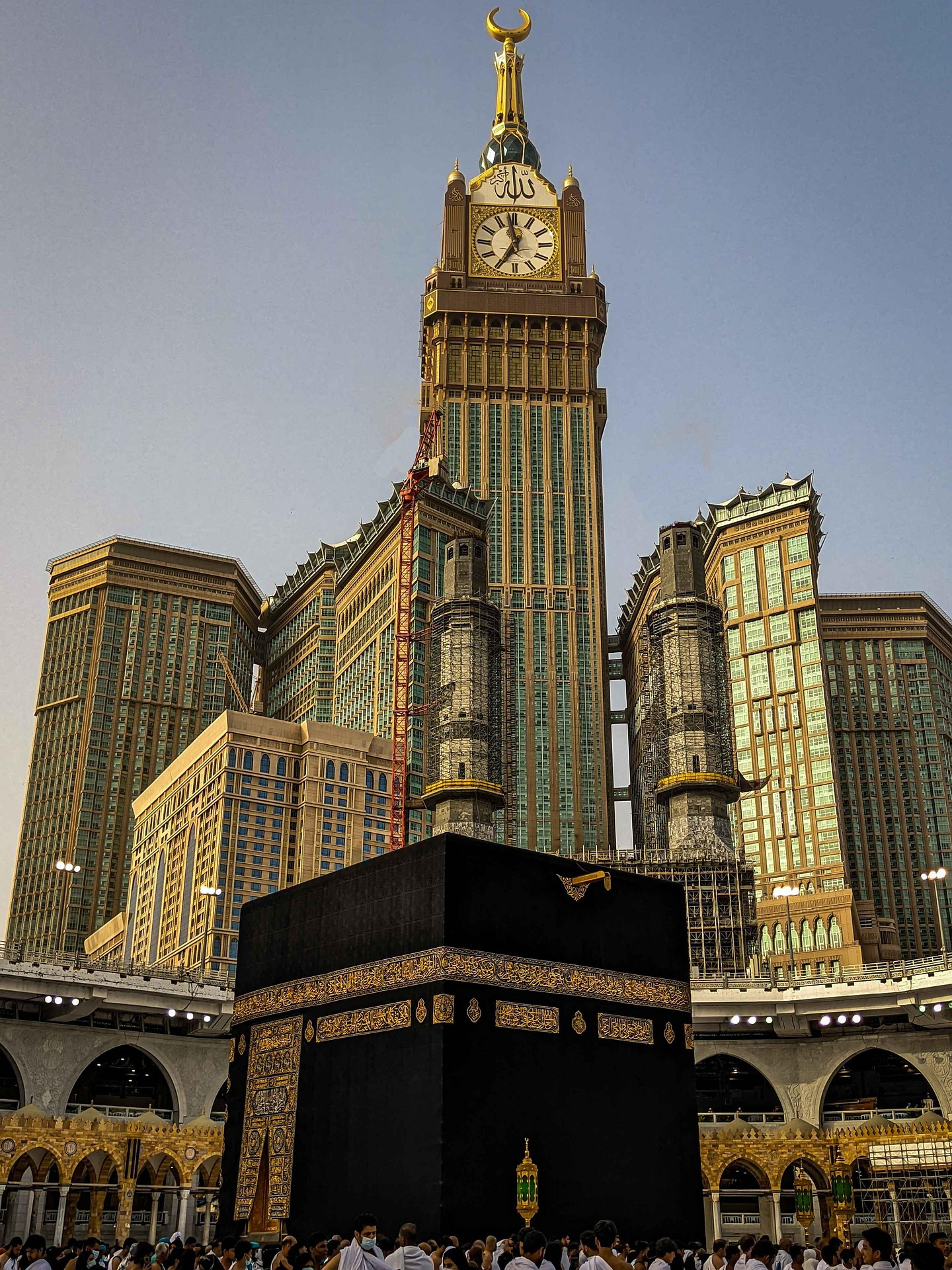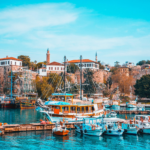Makkah, the holiest city in Islam, is not only a spiritual hub for millions of Muslims worldwide but also a rapidly modernizing urban center. As the city continues to grow, so does the need for sustainable and efficient transportation solutions. In recent years, the adoption of electric vehicles (EVs) has emerged as a promising avenue to address environmental, economic, and logistical challenges in Makkah. This article delves into the potential of electric vehicles in Makkah, exploring the benefits, challenges, and future prospects of this transformative technology.
The Need for Sustainable Transportation in Makkah
Makkah attracts over 20 million visitors annually, with numbers peaking during the Hajj and Umrah seasons. This influx of pilgrims places immense pressure on the city’s infrastructure, particularly its transportation systems. Traditional gasoline and diesel-powered vehicles contribute significantly to air pollution, traffic congestion, and carbon emissions, which are at odds with the city’s spiritual and environmental goals.
The Saudi Vision 2030 initiative, which aims to diversify the economy and promote sustainability, has placed a strong emphasis on reducing the Kingdom’s carbon footprint. As part of this vision, the adoption of electric vehicles aligns with global trends toward cleaner energy and reduced reliance on fossil fuels. For Makkah, EVs offer a unique opportunity to enhance the pilgrim experience while preserving the sanctity of the environment.
Benefits of Electric Vehicles in Makkah
- Environmental Impact
EVs produce zero tailpipe emissions, making them an ideal solution for reducing air pollution in Makkah. Given the city’s high traffic density, transitioning to electric vehicles could significantly improve air quality, benefiting both residents and pilgrims. The reduction in greenhouse gas emissions would also contribute to Saudi Arabia’s commitments under the Paris Agreement. - Energy Efficiency
Saudi Arabia is investing heavily in renewable energy, particularly solar power. The Kingdom’s vast solar energy potential can be harnessed to power EVs, creating a sustainable energy ecosystem. For instance, solar-powered charging stations could be deployed across Makkah, ensuring that EVs are charged using clean energy. - Reduced Noise Pollution
EVs are quieter than traditional vehicles, which is particularly advantageous in a city like Makkah, where tranquility and spiritual reflection are paramount. Reduced noise pollution can enhance the overall experience for pilgrims and residents alike, especially in areas surrounding the Grand Mosque. - Economic Savings
While the initial cost of EVs may be higher, their operational costs are significantly lower due to cheaper electricity compared to gasoline. Additionally, EVs require less maintenance, as they have fewer moving parts than internal combustion engine vehicles. Over time, these savings can offset the higher upfront costs, making EVs a financially viable option for individuals and businesses. - Pilgrim-Centric Solutions
Electric buses and shuttles can provide efficient and eco-friendly transportation for pilgrims traveling between holy sites, hotels, and transportation hubs. This would not only reduce congestion but also ensure a more comfortable and sustainable journey. For example, electric buses could operate on dedicated routes, ensuring timely and reliable service for pilgrims.
Challenges to EV Adoption in Makkah
Despite the clear benefits, several challenges must be addressed to facilitate the widespread adoption of electric vehicles in Makkah:
- Infrastructure Development
A robust charging infrastructure is essential for the success of EVs. Makkah will need to invest in a network of charging stations, particularly in high-traffic areas such as the Grand Mosque, hotels, and transportation hubs. Fast-charging stations will be crucial to accommodate the needs of pilgrims and residents. Additionally, the integration of smart grid technology can optimize energy distribution and prevent overloading during peak periods. - High Initial Costs
The upfront cost of EVs remains a barrier for many consumers. Government incentives, such as subsidies and tax breaks, will be necessary to encourage adoption. For instance, the Saudi government could offer financial incentives to individuals and businesses that purchase EVs, similar to programs in other countries. - Battery Technology and Range
While EV technology has advanced significantly, concerns about battery life and range persist. In a city with high temperatures like Makkah, ensuring the durability and efficiency of EV batteries will be critical. Research and development in battery technology, particularly in thermal management systems, will be essential to address these challenges. - Public Awareness and Acceptance
Many consumers are still unfamiliar with the benefits of EVs. Public awareness campaigns and pilot programs can help build trust and familiarity with electric vehicles. For example, the government could organize test-drive events and educational workshops to showcase the advantages of EVs. - Integration with Public Transport
To maximize the impact of EVs, they must be integrated into Makkah’s public transportation system. This includes electric buses, taxis, and ride-sharing services tailored to the needs of pilgrims. Collaboration with private sector companies can accelerate the deployment of electric public transport solutions.
Current Initiatives and Future Prospects
The Saudi government has already taken steps to promote electric vehicles as part of its broader sustainability agenda. In 2021, the Ministry of Energy announced plans to install over 5,000 charging stations across the Kingdom by 2025. Additionally, partnerships with global EV manufacturers, such as Tesla and Lucid Motors, are paving the way for the local production and adoption of electric vehicles.
In Makkah, the Haramain High-Speed Railway, which connects the city with Madinah, Jeddah, and other key locations, is a testament to the Kingdom’s commitment to modern and sustainable transportation. Expanding this vision to include electric vehicles for intra-city travel would further solidify Makkah’s position as a model for sustainable urban development.
Looking ahead, the integration of smart technologies, such as autonomous driving and IoT-enabled charging systems, could revolutionize transportation in Makkah. For instance, autonomous electric shuttles could provide seamless and efficient transportation for pilgrims, reducing the need for private vehicles and minimizing traffic congestion. Additionally, the use of big data and AI can optimize traffic flow and energy consumption, ensuring a smooth and sustainable transportation network.
Case Studies and Global Examples
Several cities around the world have successfully implemented electric vehicle programs, providing valuable lessons for Makkah. For example:
- Oslo, Norway: Oslo has one of the highest rates of EV adoption in the world, thanks to a combination of government incentives, robust charging infrastructure, and public awareness campaigns. The city has also implemented policies such as toll exemptions and access to bus lanes for EVs, encouraging their use.
- Shenzhen, China: Shenzhen has transitioned its entire public bus fleet to electric vehicles, significantly reducing air pollution and carbon emissions. The city’s success is attributed to strong government support, investment in charging infrastructure, and collaboration with private sector companies.
- Amsterdam, Netherlands: Amsterdam has implemented a comprehensive EV strategy, including the installation of charging stations, financial incentives for EV buyers, and the integration of EVs into public transport. The city’s approach highlights the importance of a holistic strategy that addresses infrastructure, policy, and public engagement.
These examples demonstrate that with the right policies and investments, Makkah can achieve similar success in adopting electric vehicles.
Conclusion
The adoption of electric vehicles in Makkah represents a transformative opportunity to align the city’s spiritual significance with its environmental and economic goals. By addressing the challenges and leveraging the benefits of EVs, Makkah can set a global example of sustainable urban mobility. As the world moves toward a greener future, the Holy City has the potential to lead the way, ensuring that its sacred spaces remain pristine for generations to come.
Through strategic investments, public-private partnerships, and a commitment to innovation, Makkah can embrace electric vehicles as a cornerstone of its sustainable development strategy. In doing so, it will not only enhance the pilgrim experience but also contribute to the global fight against climate change, proving that even the most ancient cities can be at the forefront of modern progress.
By learning from global best practices and tailoring solutions to the unique needs of Makkah, the city can pave the way for a cleaner, greener, and more sustainable future. The journey toward electric mobility is not without its challenges, but with determination and collaboration, Makkah can achieve its vision of becoming a model city for sustainable transportation.



Pingback: Electric Vehicles in Antalya: A Sustainable Future on the Mediterranean Coast - Tech Master Online